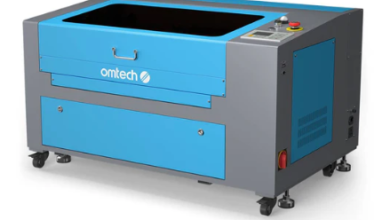Top 7 Tools Every Prop Trader Should Master
Proprietary trading, often abbreviated as prop trading, involves trading assets with the firm’s own money rather than clients’ funds. This high-stakes environment demands a deep understanding of the market, rigorous risk management, and the ability to adapt quickly to changing conditions. This article delves into the top seven tools every prop trader should master to thrive in this competitive field.
1. Advanced Charting Software
Advanced charting software is indispensable for prop traders. It provides the ability to analyze market data visually, which is essential for making informed trading decisions. These platforms offer various technical indicators, chart types, and drawing tools that help traders identify patterns, trends, and potential market reversals. Tools are popular among traders for their comprehensive charting capabilities. Mastering these tools allows traders to customize their charts according to their trading strategies, backtest different hypotheses, and refine their approach based on historical data.
2. Real-Time News Feeds
In the fast-paced world of prop trading, staying updated with real-time news is crucial. Market-moving events, economic releases, and geopolitical developments can significantly impact asset prices. Real-time news feeds provide instant access to critical information that can influence trading decisions. By mastering these tools, traders can react swiftly to breaking news, taking advantage of short-term market movements or adjusting their positions to mitigate risks.
3. Risk Management Software
Risk management is a cornerstone of successful prop trading. Tools that help manage and mitigate risks are vital for preserving capital and ensuring long-term profitability. Risk management software, such as RiskMetrics, R, and MATLAB, allows traders to assess and control their exposure to various risks. These platforms offer features like value-at-risk (VaR) calculations, stress testing, and scenario analysis, enabling traders to quantify potential losses and make informed decisions about position sizing and diversification.
4. Automated Trading Systems
Automated trading systems, also known as algorithmic trading, are becoming increasingly popular in the prop trading world. These systems use predefined algorithms to execute trades automatically based on specific criteria, such as price movements, technical indicators, or market conditions. Platforms offer robust automation capabilities that can enhance trading efficiency and consistency. By mastering automated trading systems, traders can remove the emotional bias from their trading decisions and capitalize on market opportunities around the clock. Developing and fine-tuning algorithms requires a solid understanding of programming languages like Python or C++, as well as a deep knowledge of trading strategies.
5. Trading Simulators
Trading simulators are invaluable tools for prop traders, providing a risk-free environment in which to practice and refine their trading strategies. Reliable prop trading firms allow traders to test their approaches using historical or real-time market data without risking actual capital. Mastering these tools helps traders build confidence in their strategies, identify and correct mistakes, and develop the discipline needed for successful trading. Simulators also offer the opportunity to experiment with different trading styles and techniques, enabling traders to discover what works best for them.
6. Statistical Analysis Software
Statistical analysis is a critical component of prop trading, as it helps traders identify patterns, correlations, and anomalies in market data. Software like R, Python (with libraries like pandas and NumPy), and MATLAB are powerful tools for performing sophisticated statistical analyses. Mastering these tools allows traders to analyze large datasets, develop predictive models, and test hypotheses with precision. Statistical analysis can uncover hidden relationships between different assets, forecast future price movements, and optimize trading strategies.
7. Order Execution Platforms
Efficient and reliable order execution is crucial for prop traders, as even small delays or errors can result in significant losses. Order execution platforms provide the infrastructure needed to place and manage trades seamlessly. Mastering these platforms involves understanding their features, such as order types, routing options, and execution algorithms, to ensure optimal trade execution. Traders must also be familiar with the platform’s interface and functionalities to execute trades swiftly and accurately.
High-quality order execution platforms offer advanced features like direct market access (DMA), customizable trading interfaces, and integration with other trading tools. By mastering these platforms, traders can achieve faster execution speeds, reduce slippage, and enhance their overall trading efficiency.
Conclusion
Prop trading is a demanding field that requires mastery of various tools to achieve consistent success. Advanced charting software, real-time news feeds, risk management software, automated trading systems, trading simulators, statistical analysis software, and order execution platforms are all essential for prop traders. Each of these tools plays a critical role in different aspects of trading, from analyzing market data and managing risks to executing trades and developing strategies. Prop trading companies look for traders who are proficient in these tools, as they can contribute significantly to the firm’s profitability and growth.





